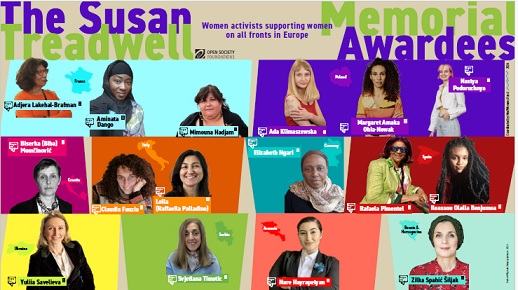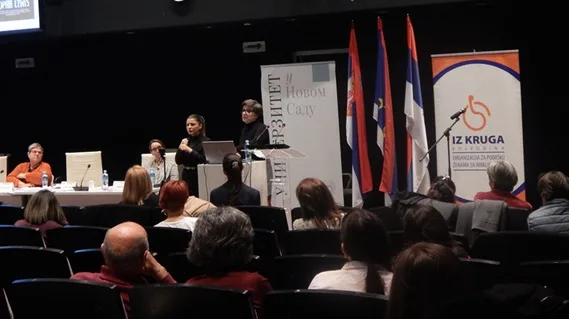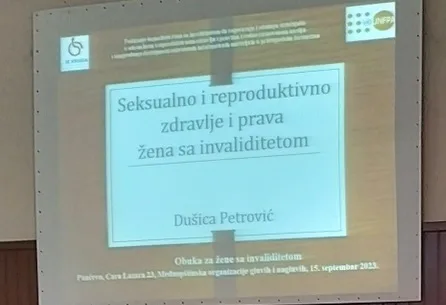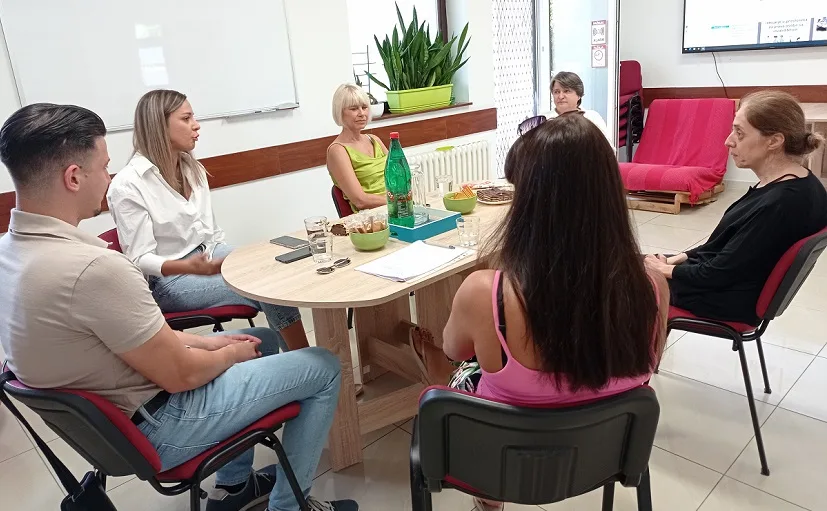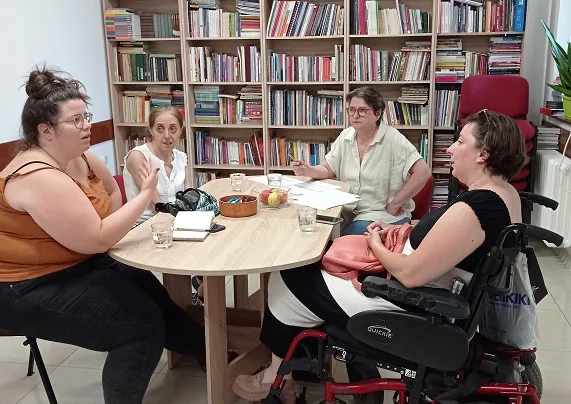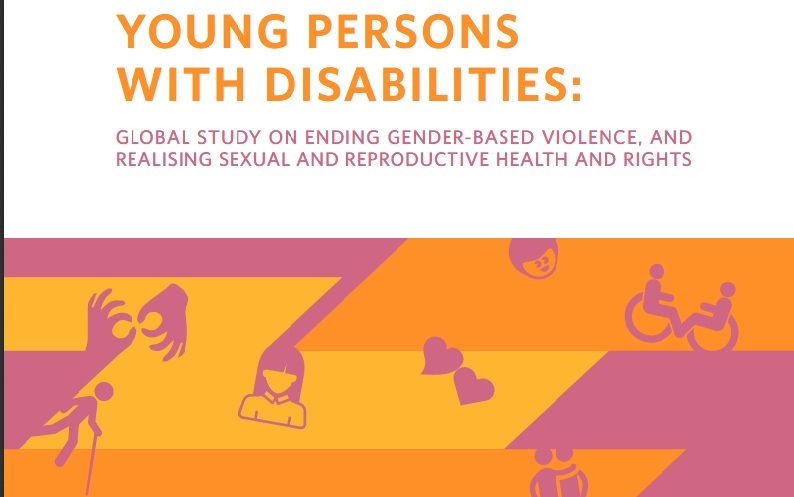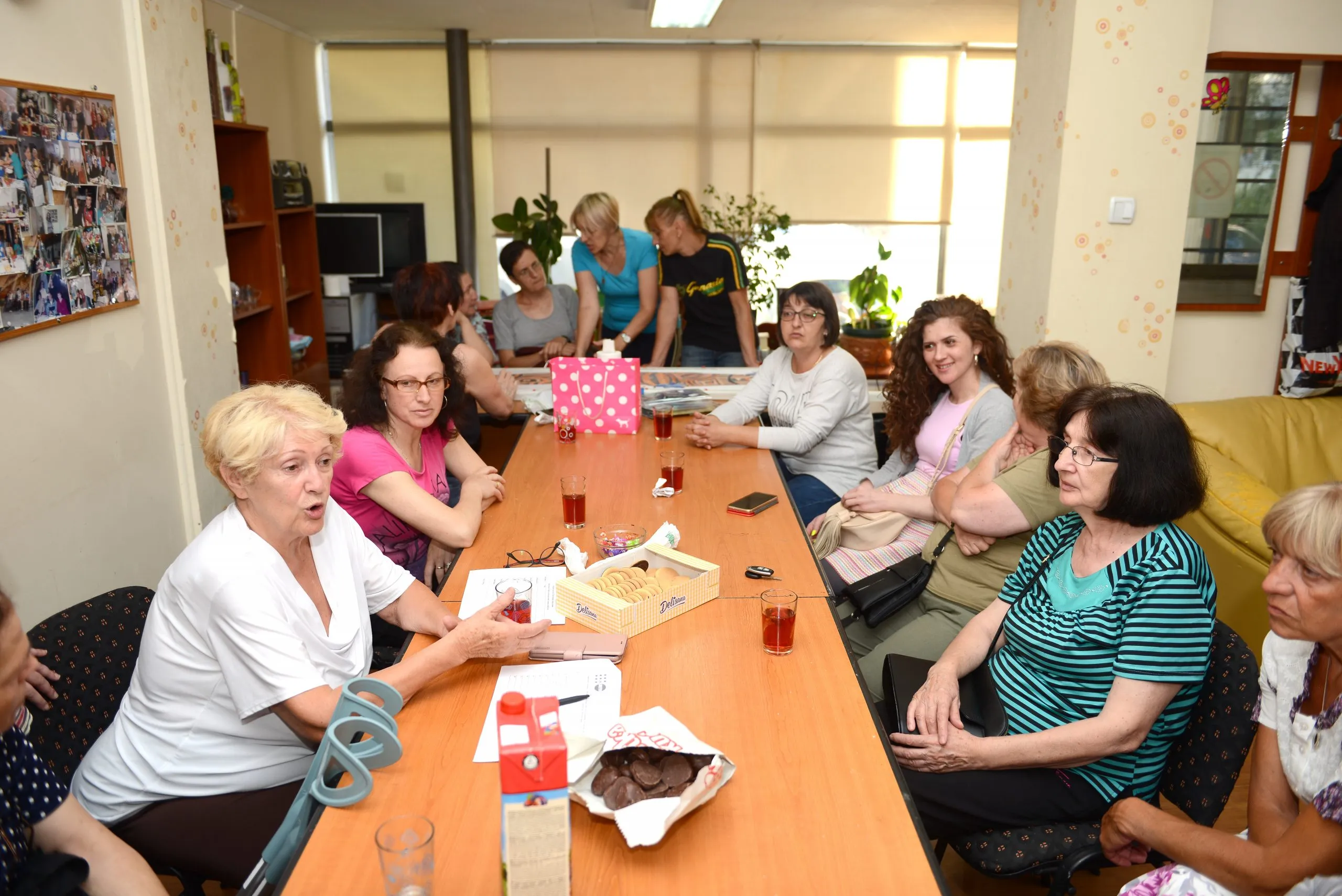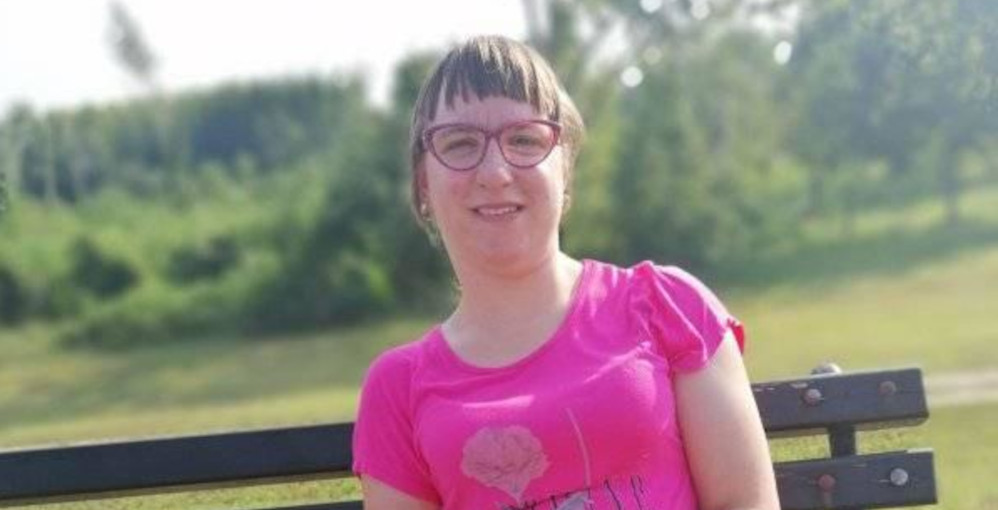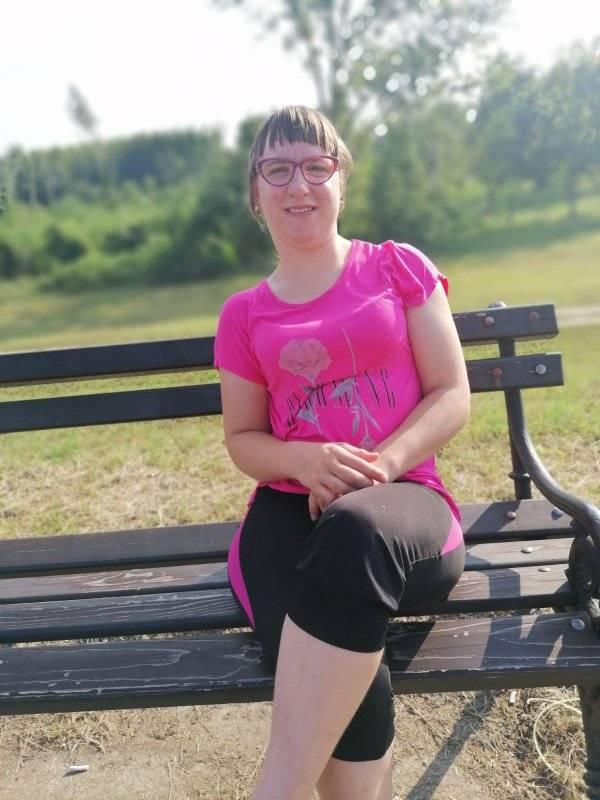
Monika Zunji is 26 years old and lives in Temerin. She completed her Master’s degree in the study program Applied Mathematics at the Faculty of Sciences in Novi Sad. At present, she is working at the Association of Citizens for Cerebral Palsy and Childhood Paralysis of the South Bačka District – Sunce, and in addition, she is active in the Citizens’ Association Kap, which assembles persons with different kinds of disabilities. She likes to be creative and set up various activities. In her free time, she does 3D computer modeling and enjoys reading.
Monika is one of the participants of the project Building capacities of women with disabilities for advocacy for their sexual and reproductive rights, carried out by the organization IZ KRUGA VOJVODINA in five Serbian cities with the support of the United Nations Population Fund (UNFPA). She took part in online interactive pieces of training where women with disabilities acquired knowledge about disabilities, sexual and reproductive rights and health, universal design, and accessibility of health (gynecological) institutions and services. They also mastered practical skills such as documenting and mapping obstacles, public advocacy, lobbying, and developing an advocacy action plan. In the final phase of the training, Monika worked on documenting and mapping barriers that prevent women with disabilities from exercising their sexual and reproductive rights in Temerin and made a short film on the subject. The film was shown in the Youth Club Temerin. It stimulated a constructive dialogue with municipal representatives aiming to incite joint action of the local management and civil organizations to improve the position of women with disabilities in the local community.
How did it come about that you participated in a project dealing with the promotion of the sexual and reproductive rights of women with disabilities?
MZ: When the Kap Association received an invitation to participate in this project, Tanja Srdić, one of the founders of the Association, approached me. I read it and loved the subject of the project. Tanja asked me to be the person that would help with the implementation, which was an honor. The fact that I could get involved in activities that might contribute to the improvement of the life of persons with disabilities was a great challenge for me. I would like to take this opportunity to thank the organizers for choosing Temerin and our Association for this project.
Why do you find this topic significant?
MZ: I am a woman with a disability. I live with cerebral palsy and have difficulties moving around and talking. I try to be as independent as possible and live a full life. Part of it is sexual life. It appears that the majority of society expects people with disabilities to be sexually inactive as if it is just their right. It is our right too, in my opinion. Furthermore, I would like to prepare for some situations I hope are ahead of me since I would like to start a family of my own. It has been a great opportunity to share my experience with those that walk in similar shoes and to use my experience to help other women prepare for everything that awaits them.
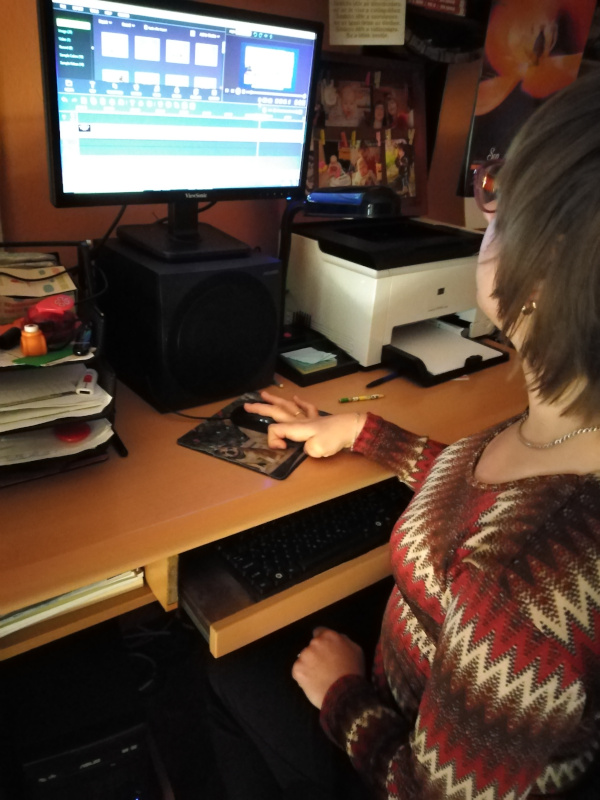
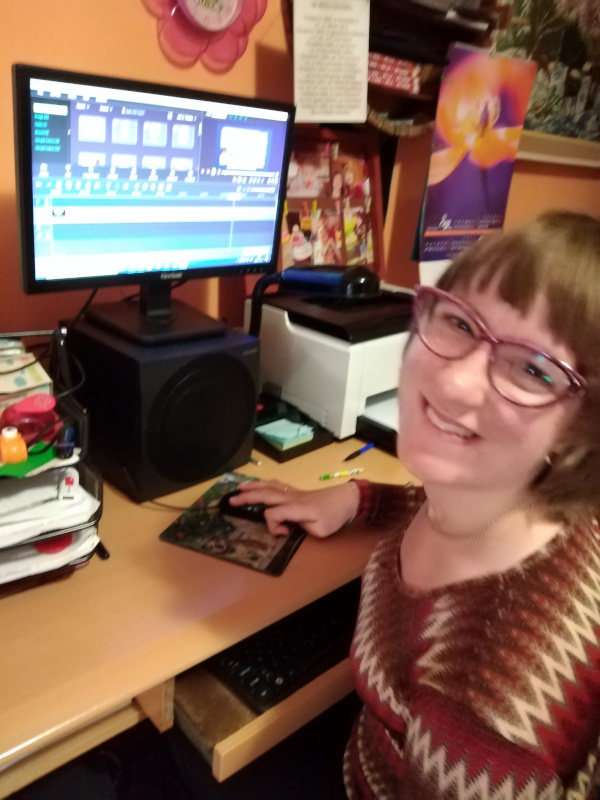
How much did online training mean to you, what exactly could you apply, and what changed for you after it?
MZ: Online training meant a great deal. I was familiar with the legal framework and our rights beforehand, but what meant a great deal to me was to hear how the law is implemented. We had a chance to listen to the experiences of other women. It meant a great deal to be in training with Tatjana Stojsic – Petkovic, who sets an example of how one should live. Training really had a positive effect on me. I used to go nowhere on my own, especially to the doctors, because I was afraid that no one would understand me due to my speech disorder or that nobody would help me if I needed assistance. Now I am much freer and braver doing my daily activities by myself. Simultaneously I have a different view on love and partnership. I have more faith that one day I will find my life partner with whom I will start a family, who will have a complete understanding of me and my condition.
How did the process of mapping barriers which prevent women with disabilities from fulfilling their rights in Temerin unwind, and what would you single out as the main obstacles?
MZ: Temerin is a municipality made of four local communities, and we were lucky to include women from all local communities. It is beneficial since one knows its locality best. People living in Temerin don’t know about obstacles existing in Backi Jarak, but citizens of Backi Jarak do. I would single out two obstacles that were pointed out the biggest: physical (architectural) barriers and inaccessible communication. Numerous potholes in the roadways aggravate the movement of persons with disabilities, especially ones using aids like tricycles, wheelchairs, canes, and so on. Communication-wise, deaf persons cannot make doctor’s appointments on their own because there is no option for SMS booking. I often notice that the medical staff is not ready to interact with us who speak another language or have hearing problems or speech difficulties.
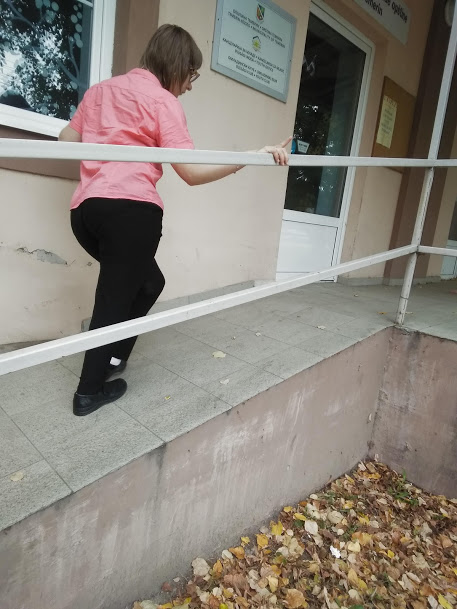
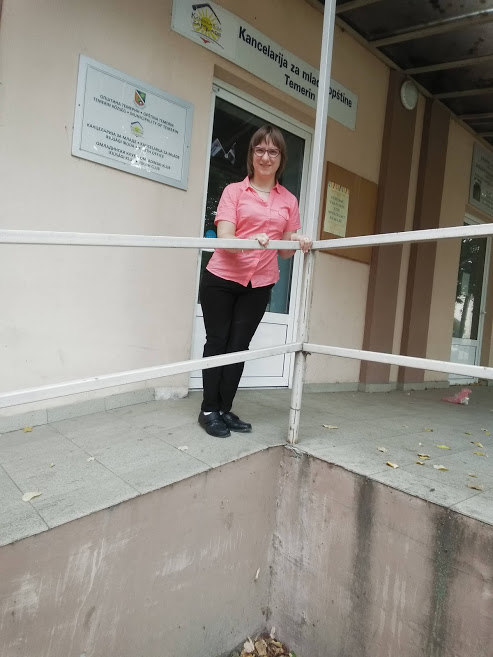
Based on the collected materials, you made a short film. How was it conceived, and who did you work with on the film?
MZ: I tried to employ as many training participants as I could in the film. I attempted to give them each task they could fulfill on their own. Some handed photographs over, and others made a short video about the main issues they have in achieving independent living and exercising their rights. Djurdja, who also takes part in other activities of the association, helped us in making the film. The film has three parts. In the first one, we presented our municipality, population structure, and general data about Temerin and introduced the Kap Association. In the second part, we mapped the obstacles. We also showcased examples of good practice, like the Youth Office and the fact that there is a hydraulic gynecological table in the health center. In the last part, three girls talk about their experiences: Maya and her mother talk about issues of deaf people; Biljana emphasizes problems of persons with motor impairment face, and I present troubles of people that do not speak the country’s official language.
What was the most strenuous part of making the film?
MZ: The hardest was engaging persons with different potentials equally. I had to assess the level of their digital literacy and make tasks that were not too demanding but would enable them to show their specifics. I also had to take care not to collect too much material and keep the film as much as possible on the topic.
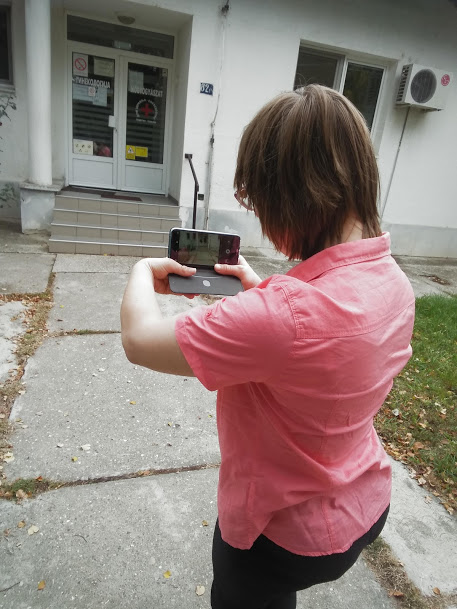
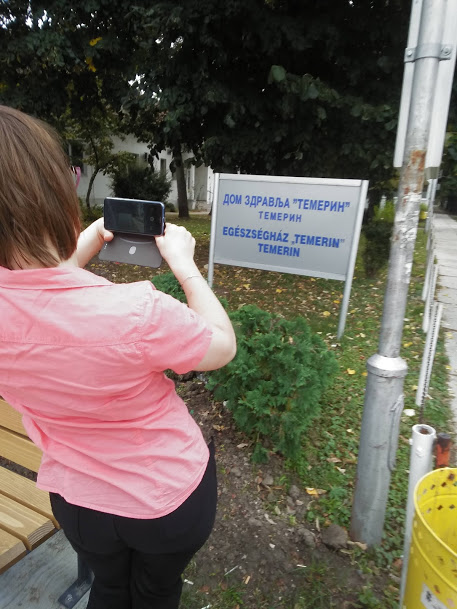
How did the audience react after the film was shown in The Youth Club in Temerin?
MZ: I have to admit that the reactions were much more positive than I expected. It was an honor that two members of the city council and the representatives of other organizations attended the projection. What pleased me most was that the film initiated an open conversation between the visitors. They listened to us, which is significant. We had a chance to showcase problems women with disabilities face daily in Temerin. We know our problems best. We might have pinpointed problems that decision-makers never thought about or haven’t considered being an issue for anyone. I was happy because they asked to send the film to others and set up one more projection. It was an indication that we did a good job.
How will you remember this project?
MZ: This project meant a lot to me. First and foremost, women with disabilities have the same right to sexual life and to create a family as women without disabilities. I will keep that in mind – and the fact I have the right to love and be loved too. I learned extra things during the project. Due to the Coronavirus, we did almost the entire project online. I had to face the fear that nobody would understand me in the online space because of my speech impairment (it’s easier to understand me when I talk face to face). Simultaneously I had a chance to familiarize myself with technology and the possibilities of working online, which has always been a challenge. I am very proud of the work of the association. The members regularly got involved in training, regardless of the obligations they had apart from it. They were always present and open to talking about sensitive subjects. Joint work on the film showed me that if each of us gives our best, we can achieve something we cannot on our own.

Translated by: Suzana Belos
